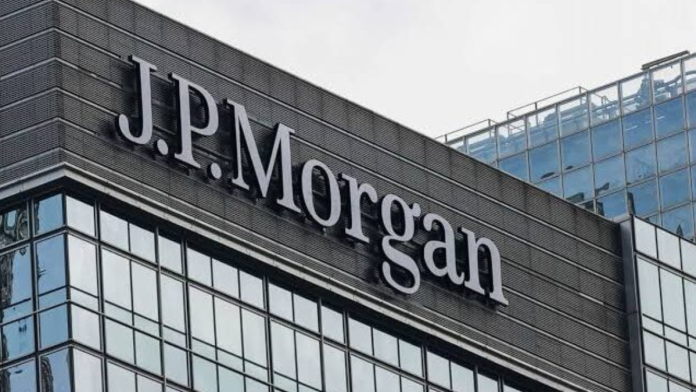JPMorgan, one of the largest banks in the United States, is preparing to engage with policymakers and stakeholders regarding a newly announced fee for H-1B visas. The announcement, reported by Indian media, revealed that companies would be required to pay $100,000 for each new H-1B visa application. This surprise move by U.S. President Donald Trump has raised concerns among many companies that rely on highly skilled international employees.
H-1B visas are special work permits that allow U.S. companies to hire foreign workers in specialized fields such as technology, finance, and engineering. These visas are critical for companies that need talent not easily available in the U.S. They also allow employees to move between offices in different countries, take on new roles, and help companies operate smoothly on a global scale.
The White House later clarified that the fee applies only to new visa applications and does not affect H-1B holders who are already working in the United States and re-entering the country. This means current visa holders are not affected, but companies looking to hire new employees or transfer staff internationally will face significantly higher costs.
China lures Indian techies with new K visa as U.S. slams H-1B with $100,000 price tag
Companies Respond to Sudden Announcement
The announcement has caused concern for organizations that rely heavily on international talent. JPMorgan, which sponsored thousands of H-1B visas last year, is among the top affected firms. U.S. data shows the bank approved visas for around 2,440 employees in fiscal year 2024.
JPMorgan CEO Jamie Dimon described the announcement as catching “everyone off guard” and emphasized the importance of visas for moving employees globally. These visas allow staff to take new roles in different markets, which is essential for career growth and international operations.
Other companies in technology and finance have advised employees to remain in the United States or return quickly, reflecting the uncertainty caused by the fee. Visas are not just a legal requirement—they are also key for career development and global workforce planning. Any new costs or restrictions could affect promotions, transfers, and the ability of companies to deploy talent where it is most needed.
H-1B visa applicants will now face a $100,000 fee under new policy
Wider Implications for Trade and International Relations
The H-1B visa fee is part of broader immigration policies implemented by the U.S. administration. These measures are seen as an effort to protect domestic jobs. At the same time, they have raised questions about international trade and relations, particularly with India, which is a major source of skilled workers in the United States.
Trade discussions between the U.S. and India are ongoing. Recently, India’s Trade Minister Piyush Goyal visited Washington to accelerate talks on a long-pending trade deal. The visit came shortly after the U.S. imposed additional tariffs on Indian imports. Tariffs are taxes that increase the cost of imported goods, and they can affect trade relationships, business costs, and market access. The U.S. had already applied high tariffs on certain Indian products, creating further tension in trade negotiations.
Commenting on trade relations, Jamie Dimon expressed hope for stronger cooperation, calling India a “natural friend of America” and emphasizing the importance of building positive international relationships. The H-1B visa changes add complexity, as the ability to move skilled workers freely is closely tied to both business operations and trade activities.
The $100,000 fee represents a significant cost for companies like JPMorgan, which rely on H-1B visas for essential staffing and global mobility. The bank’s plan to engage with stakeholders highlights the seriousness of this change and shows how companies are navigating its impact on thousands of employees worldwide.
